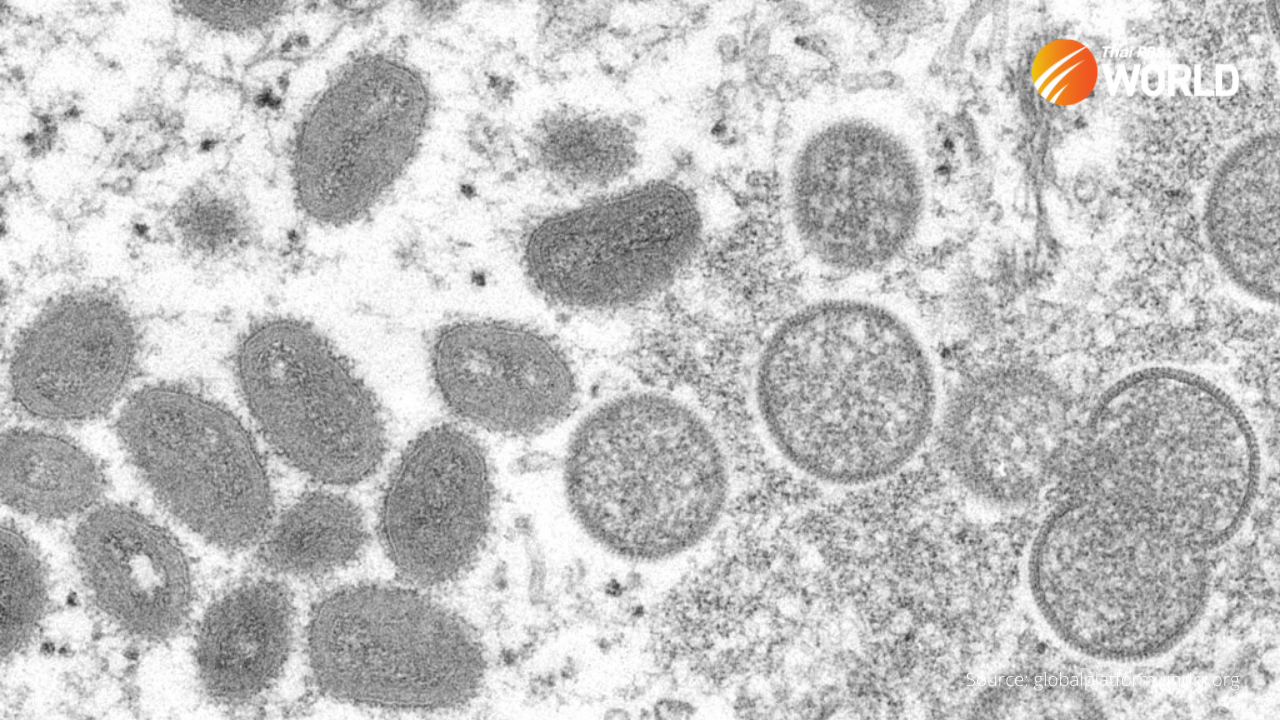
Less than a month after it lifted COVID-19 travel restrictions, Thailand is facing the threat of another virus causing outbreaks around the world.
The kingdom is now raising its guard against monkeypox, a disease that has never reached Thai shores but is spreading quickly in Europe, the United States, Australia and the Middle East – important tourism markets for Thailand.
In the face of this growing threat to public health, the Disease Control Department (DCD) has set up an emergency operations center to monitor the global situation, tighten border controls, and plan for a possible monkeypox outbreak here.
What is monkeypox?
Monkeypox was first discovered in 1958 when two outbreaks of a pox-like disease occurred in colonies of monkeys kept for research in Denmark.
The first human case of monkeypox was recorded in 1970 in the Congo. Since then, people in several other central and west African countries have come down with the disease. Monkeypox virus spreads in humans through close contact with infected persons or animals, and exposure to clothing or bedding of patients with rashes.
Symptoms of monkeypox include fever, headache, swelling, aching muscles and exhaustion, and typically itchy rash and lesions. The symptoms are similar to chickenpox but less severe. Most people will recover from monkeypox in a few weeks. However, in serious cases, the disease can be fatal. The mortality rate among small children can be as high as 10 percent.
For the past 50 years, monkeypox has been confined to the areas of Africa where it is endemic. Cases discovered outside the endemic zone were always linked to international travel or imported animals.
But in the past few weeks, over 20 nations outside Africa have reported a total of more than 100 monkeypox cases. Many of these cases have no history of travel to Africa.
How big is this threat?
The World Health Organization (WHO) predicts that the number of monkeypox cases will rise quickly. Yet, the WHO says the disease is unlikely to spiral into another pandemic given that the monkeypox virus is not as infectious as COVID-19.
"This is a containable situation," WHO's emerging-disease lead Maria Van Kerkhove said of the monkeypox outbreak.
Is Thailand safe?
Dr Opart Karnkawinpong, chief of Thailand's DCD, says monkeypox has not been detected on Thai soil yet. Better still, most Thais born before 1981 will be protected against monkeypox thanks to the country's program of inoculation with smallpox vaccine, which had been in place in the past.
However, younger people will have no such protection against the virus. And as more international visitors flow into the country, the monkeypox risk will increase.
From May 1 to May 22, Thailand recorded 13,142 arrivals from high-risk countries such as the United Kingdom, Spain, and Portugal.
Epidemiology Bureau director Dr Chakrarat Pittayawonganon said airport officials will screen passengers arriving from at-risk countries for rashes and other symptoms associated with the disease. "Health-Beware Cards" will also be handed out to these passengers, telling them to visit a hospital immediately if they develop monkeypox symptoms and to disclose their travel history to Thai authorities.
"The Medical Services Department is able to test for monkeypox," Dr Chakrarat said.
Precautions recommended
Several countries have already either imposed or recommended mandatory 21-day quarantine for monkeypox cases in a bid to prevent large outbreaks.
At present, there is no cure for monkeypox.
People traveling to countries where monkeypox has been detected are advised to stay away from possible carriers like rodents and primates. If they touch such animals, they should wash their hands with soap and clean water. Also, they should not share their personal effects such as clothing and toiletries with others. Close contact with confirmed or suspected monkeypox patients should be strictly avoided.
Dr Opart said people who have questions about monkeypox can call (02) 590 3839 or 1422 for answers.
By Thai PBS World's General Desk